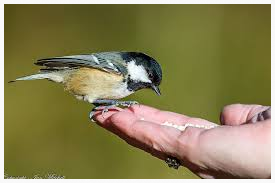1. An expression is a general cluster of words like "don't know which end is up." This means to be disoriented or confused. Example: My cousin Julie is so busy, she doesn’t know which end is up.
2. An idiom is a colorful expression like "raining cats and dogs" (which means raining very hard). Another idiom is "doing something by the seat of your pants" (which means doing something as you go along, without prior plan). Example: This process is new for everyone on the team; we’re doing it by the seat of our pants this first time. The meanings of these idioms have nothing to do with pants or house pets, but they give us interesting ways to express ourselves.
3. A saying (also called a proverb, maxim, or adage) is a piece of wisdom from one’s culture. Our earlier example (a bird in the hand) is a piece of advice for people trying to choose between two options. From Chinese culture, I have always liked the proverb, “A journey of 1000 miles begins with the first step.” This advises us to not be afraid of big undertakings.
How would you categorize the following expressions: saying, idiom, or general expression?
1. What!? Bob is the new district manager!? Are you pulling my leg?
2. A stitch in time saves nine.
3. My teacher friends are burned out at the end of the school year.
4. I never watch NASCAR racing, but my neighbor loves it. To each his own, I guess.
5. Julio is new in the department, so Monica is taking time to show him the ropes.
6. Never judge a book by its cover.
7. The presentation was so amazing that it knocked our socks off.
8. Our group came up with some great new ideas.
9. The early bird catches the worm.
10. My officemate is just nuts about the Detroit Tigers.
ANSWERS
Sayings:
2. A stitch in time saves nine. (If you take care of maintenance issues early, you avoid big problems later.)
6. Never judge a book by its cover. (A person or thing may have qualities that you cannot see on the surface.)
9. The early bird catches the worm. (If you show up late, the opportunity may be gone.)
Idioms:
1. to pull someone’s leg (to kid or tease someone, to make up information)
5. to show someone the ropes (to give someone orientation training)
7. to knock our socks off (to impress us)
Expressions:
3. to be burned out (to have no more energy left)
4. to each his own (Every person has different tastes and preferences.)
8. to come up with (to create or think up something new)
10. to be nuts about (to be enthusiastic about or in love with)
Many people are familiar with the Golden Rule. This is a proverb (saying) that advises us to “Treat others as we would have them treat us.” Recently, I learned an interculturally improved variation called the Platinum Rule: “Treat others as they would like to be treated.”
Do you have a favorite saying or proverb?











